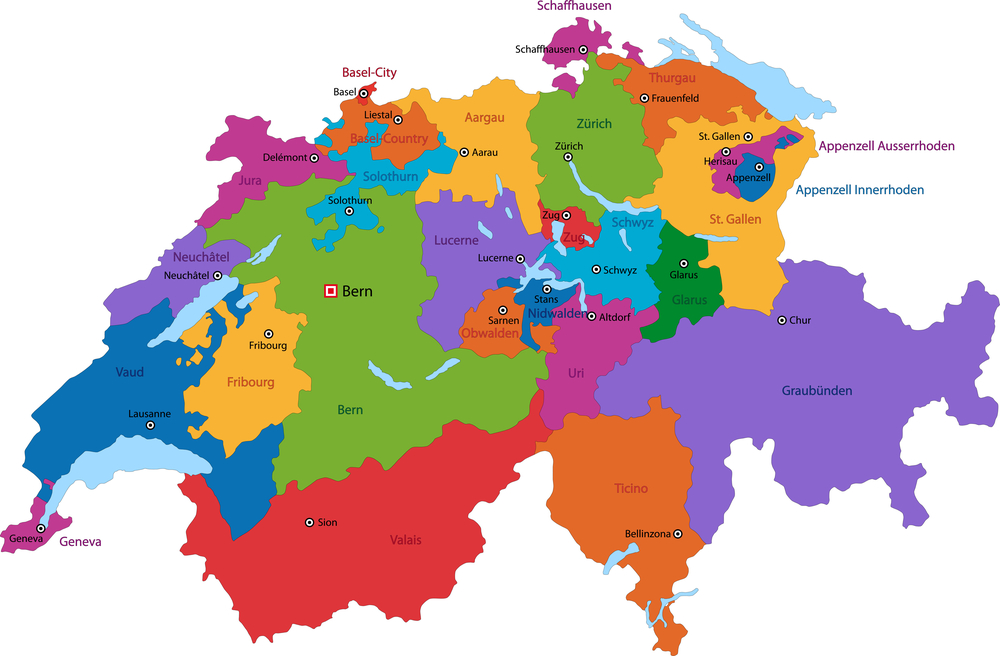"Security 2017" - Swiss take an optimistic view of CH
The Swiss electorate feels very secure and is confident about the future of Switzerland. This year, they have an above-average level of trust in the Swiss authorities and institutions.

Swiss people feel very safe. This was confirmed by the VBS commissioned "Safety 2017" survey revealed. At 93% (+7%), the general perception of safety is higher than ever before. In public spaces, too, 79% (-2%) feel safe. Compared with 2016, significantly more people are optimistic about the future of Switzerland (82%, +7%).
Trustworthy
In 2017, trust in institutions and authorities was above the long-term average (2017: 6.7 on a scale of 10, long-term average 6.3). Trust in the police (7.9, ±0.0) continues to have the highest value, followed by trust in the courts (7.4, +0.1). In third place is the Federal Council with 7.1 (+0.1). The Swiss economy (6.8, ±0.0), the armed forces (6.8, +0.1) and the federal parliament (6.6, +0.1) occupy the middle positions. The lowest level of trust continues to be placed in the political parties (5.5, +0.2) and the media (5.5, +0.4). However, trust in political parties and the media has increased significantly compared with the previous year.
Satisfied with the Swiss Army
Overall, the electorate is satisfied with the armed forces. At 82% (-2%), there is above-average support for the necessity of the Swiss armed forces. For 46% (±0%) of respondents, the military plays a central role in Swiss life. A majority of 59% (+2%) support the militia army over a professional army. Respondents are more satisfied than average (6.5, +0.2 on a scale of 1-10) with the performance of the Swiss armed forces in a long-term comparison (6.3). The majority of the population believes that the level of current defense spending is just right (49%, +1%) or even too low (12%, -2%).
Information behavior on security policy issues
The respondents predominantly use traditional media such as newspapers, television and radio as sources of information on security-related topics. Two-thirds use a mix of analog and digital information channels. One third (32%) of respondents consider social media to be suitable channels for disseminating information on security or the Swiss Armed Forces.
Pessimistic assessment of the global political situation
The Swiss electorate is very pessimistic about the development of the future global political situation (73%, -1%). As in 2016, this pessimistic view of the world is at an all-time high.
Travel behavior adapted due to terrorism
89% (+2%) of respondents support the increased fight against terrorism. Due to terrorist attacks abroad, 29% of the Swiss say they have adjusted their travel behavior. Of these, 84% consult federal travel advisories and 75% avoid countries where terrorist attacks have recently occurred. As a result of global terrorism, 40% of respondents spend their vacations only in Europe and 35% are afraid to travel to big cities.
Neutral and low readiness to open
Neutrality has strong support among the voting population. 95% (±0%) of respondents are in favor of maintaining neutrality, and 84% (-1%) see it as inextricably linked to the concept of the Swiss state. However, the practical implementation of neutrality is increasingly viewed critically. Significantly more respondents believe that Switzerland's close political and economic ties with other states make neutrality impossible (37%, +9%) and that neutrality can no longer be credibly protected militarily (51%, +6%). The low willingness to open up is reflected in the fact that joining NATO (19%, ±0%) or the EU (15%, -1%) are not options for the Swiss. By contrast, support for economic cooperation with the EU remains very high (81%, ±0%).
Study: The representative data collection for the "Security 2017" study was conducted by telephone between January 4 and 23 among 1209 voters in German-, French- and Italian-speaking Switzerland. The survey was conducted by the LINK research institute. The sampling error is ±2.8%.
Source: Press release VBS









